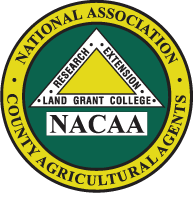Learning Module/Notebook
Matt Lenhardt, Sam Marshall, Dr. Lucy Bradley, Cyndi Lauderdale
Agriculture Agent, Horticulture
NC Cooperative Extension, NCSU
Southern Region
1 Agriculture Agent, Horticulture, NC Cooperative Extension, NCSU, Statesville, NC, 28687
2 Horticulture Agent, NC Cooperative Extension - Iredell County, Statesville, NC, 28677
3 Horticulture Agent, NC Cooperative Extension - Haywood County, Waynesville, NC, 28786
4 Extension Specialist Urban Horticulture, NC State University, Raleigh, NC, 27695
5 Horticulture Agent, NC Cooperative Extension - Wilson County, Goldsboro, NC, 27893
- Abbreviated Power Point Presentation (25MB)
- Homeowner Checklist
- Participant Checklist
- Training Flyer
- Workbook
In North Carolina, commercial ornamental and turf pesticide applicators are required to obtain an applicators license, and get re-certified every five years through continuing education. However, no such licensing or education is required for homeowners. Storm water runoff from urban areas is one of the largest sources of decreased water quality in estuaries, lakes, ponds, and rivers (USEPA 2002), and as the population of North Carolina continues to increase, preserving the quality of natural resources should be an important goal of every citizen, as well as a component to a comprehensive horticulture program for Cooperative Extension in North Carolina. Therefore, the need exists to give residential fertilizer and irrigation workshops so homeowners are educated on best management practices for their yard.
In 2018 “Carolina Lawn Care – Managing Beautiful Lawns while Protecting our Waterways” was created as a hands-on approach to educating homeowners to care for their lawns in an environmentally sound way, including the importance of reducing non-point source pollution. Materials created included presentation power point, work booklet, pre/post tests, supporting videos, landscape checklist, and class flyer. In 2019, three Train-the-Trainers workshops were delivered to thirty (n=30) horticulture Extension agents in the North Carolina coastal and Piedmont area for the agent to give to their local county clientele.
Pre/post-tests (n=30) indicated a 19% knowledge gain in subjects including applying correct nitrogen amounts, spreader calibration, recommended irrigation timing, and using slow release nitrogen instead of quick releases. Eighty-three percent of agents indicated intent to adopt at least one recommended practice change as a result of this training. Further, 70% learned how to properly calibrate spreaders before applying fertilizers, and 70% of agents will calibrate irrigation systems to apply recommended amounts of water. Approximately 75% of horticulture agents that attended the train-the-trainers will deliver Carolina Lawn Care as an educational program. In its first year alone, Carolina Lawn Care was delivered throughout 8 Piedmont and Coastal Plain counties to approximately 120 residential clientele. In 2020, environmental and economic impacts will be assessed.
